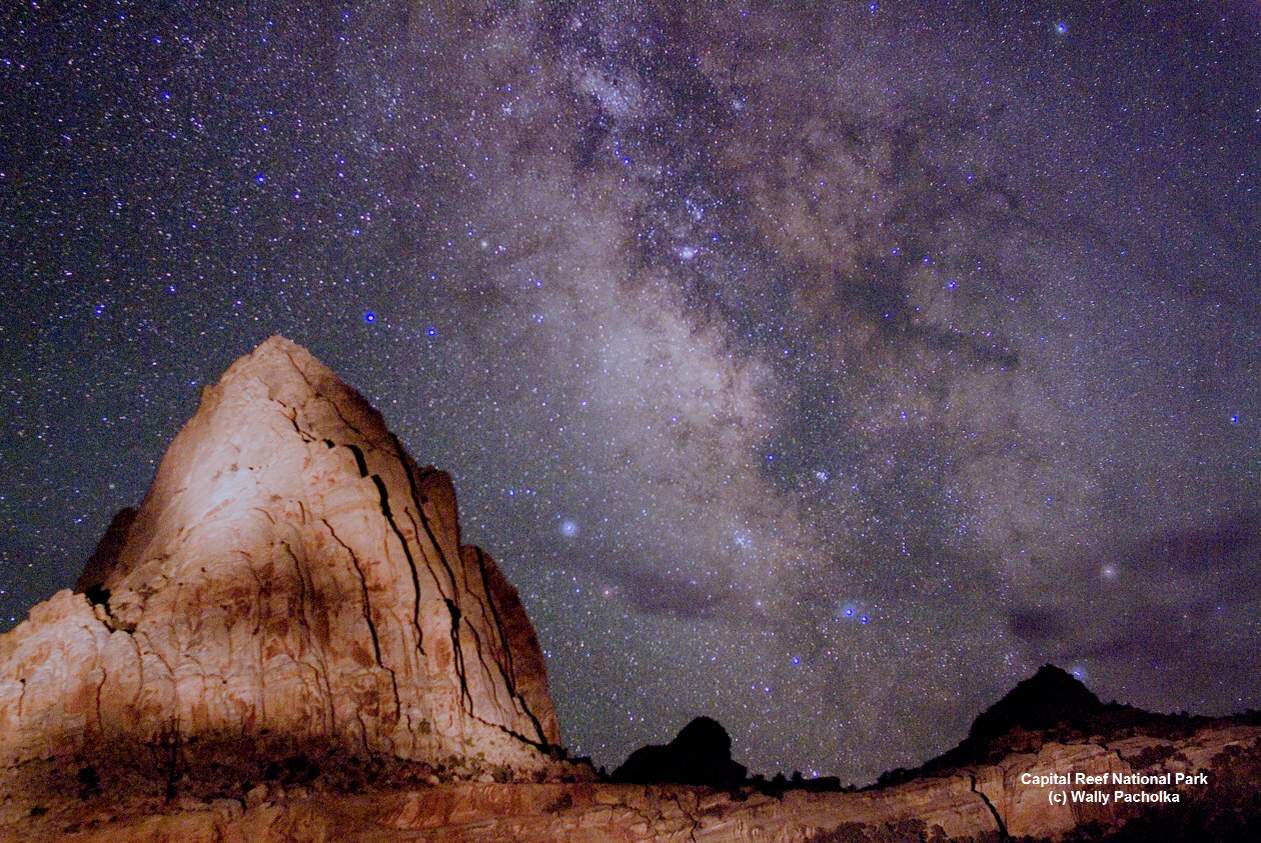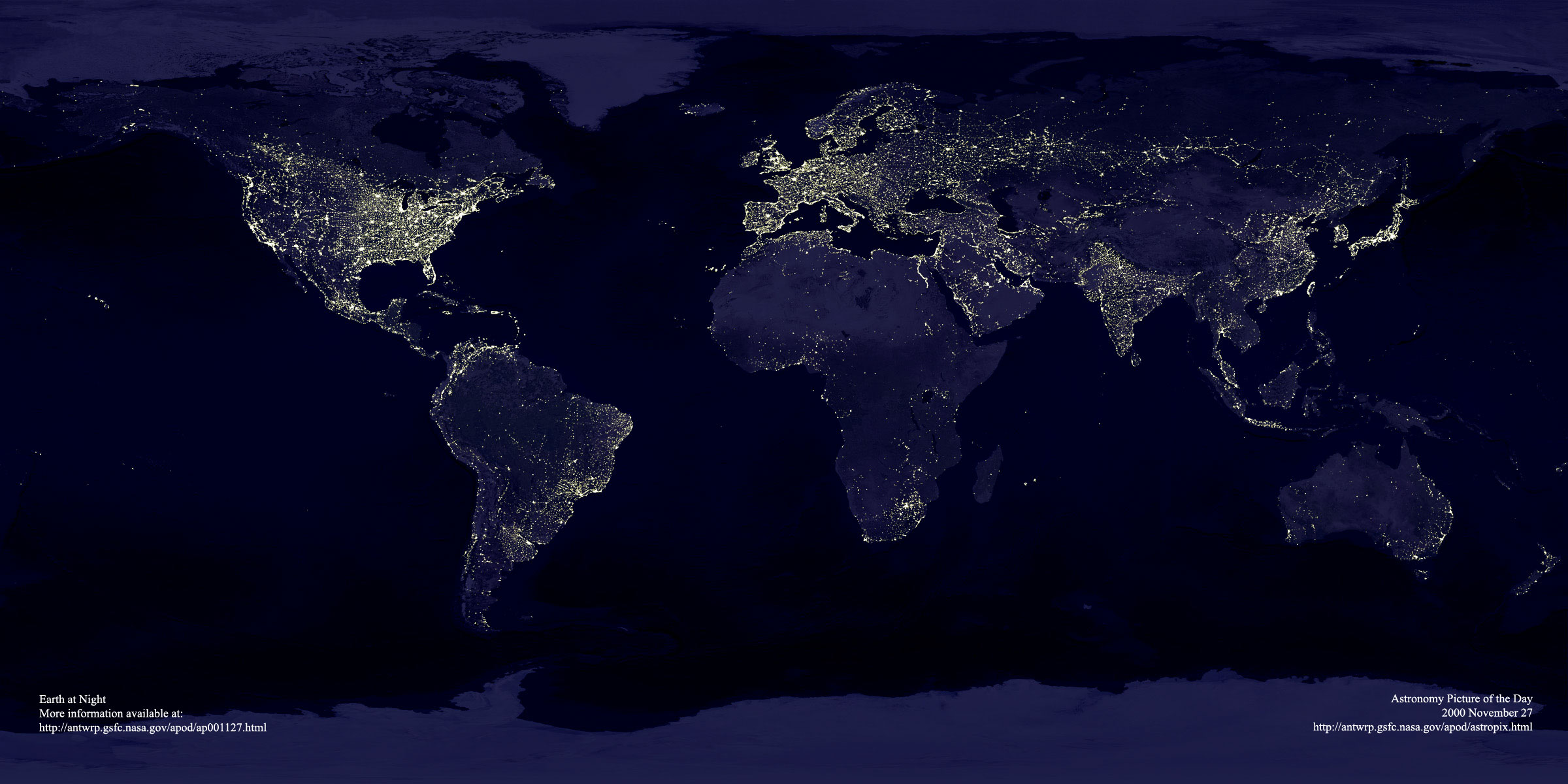A couple years ago, we dragged the kids across country to see Mt. Rushmore, Crazy Horse and the Bad Lands. It was somewhere around 22 hours driving. We were camping in an RV and somewhere in the middle of South Dakota, literally 100 miles from nowhere. Some time around 3 am I went outside to streatch. I noticed how ‘light’ everything was. I could see across the camp ground, see out fire pit. There was no danger of falling over anything… then it dawned on me that the moon was not up!! 'holy shit that’s a lot of light'… as I looked up, the absolute most exhilarating view of millions of millions of stars filled my view. If you have never seen it, I can’t explain it. It is a beauty without parallel. Then realize that you can SO clearly see the Milky Way… even able to notice dark spots where stellar dust clouds block stars, creating an eerie absence of stars. I was so excited, I woke the whole family and made them come out to see. I know my son had never seen it. It had been years for my wife and I. I wish I had my camera, but here is a close proximity.

Today, in most cities, you can count the stars in one or two breaths. Here, a little north of Indianapolis, we can count the visible stars on our hands. ‘Urban Sky Glow’ – I hate it. God willing, I will retire to a place where it snows, hard, and the night sky is a star filled wonder to behold.

Where do you live? And what will it be like for your grand children? Go here (International Dark-Sky Association) for a group that is fighting light pollution and waste. If we reduce the light wasted going up, I believe it is a 18% reduction in energy consumed (wasted) to light the sky.







8 comments:
Thanks so much for visiting my blog, and your compliment of linking to it. That's a pretty cool story about the stars as well. Magical! I'll be back!
How nice it is to work for a lighting company that considers dark skies a priority in its new products... HOORAY!
For other star/astronomer geeks out there (like YOU, DNR), I know this is a plus!!
But don't the aliens need the light to find us when its dark?
Wonderful post, DNR.
This may sound a bit alarmist, but I believe the survival of the human race (and subsequently many other species) may only be possible if people regain their awareness of the wonders of the natural world - and the need to respect it.
The skies are still wonderfully dark where I live, and although we don't have the grand mountains on our horizon, a walk outside on a clear night is breath-taking.
I think of a line from a love song: "And the moon and stars are the gifts you gave to a dark and an empty sky." They are a magnificant gift, ours to enjoy if only we have the sense to turn out the lights.
Thanks for sharing your beautiful reverie.
Robin – Glad you liked it. Please, return often. Thanks to the Wizened Wizard for the introductions.
B Matthews – a small plus…
Dazd – Why doesn’t your comment surprise me?
The Wize One – Thank you, I (we, my wife and I) really hope to move to a very remote place soon.
You’re not being alarmist. The science behind our (humans) requirements for a definite separation of dark time and light time is amazing. Circadian rhythms are a result of darkness’ onset and allow us to produce melatonin and serotonin. Messing with this production (third shift workers, for example) results in higher chances for cancer, shortened life span and other internal stresses. The scary part, and to your point, is how little light can effect the stopping of melatonin production. A full moon can mess with it if sleeping outside without shelter.
Interesting reply. I hadn't even thought about the specifics of light polution - just of the general human embracing of consumption and waste, and our disregard for the well-being of where our food comes from...
What do we really need, anyway? Our health, shelter of some kind, and enough food and water to sustain us. What percentage of our interest and consumption does that represent?
I'm glad to "know" you.
Seriously...my comment was not made in a disrespectful manner. My sarcasm gets the bteer of me at times.
In regards to the post, I was raised in a country farm setting. I do miss the stars at night and am hateful of the "night glow". I have been camping around Patricksburg and was amazed at the stars! I've also been out west camping in the mountains of western Utah...wow.
I do believe we all need to take a more conservative approach to light management. I also fully believe that pollution (smog) plays a role in what stars we see.
And it's no wonder the Native American Indians believed that each star represented a relatives souls campfire. To have lived back then amongst the stars must've been amazing.
Dazd - No worries my friend. As the missus will attest, I like sarcasm as much or more than anyone.
Post a Comment